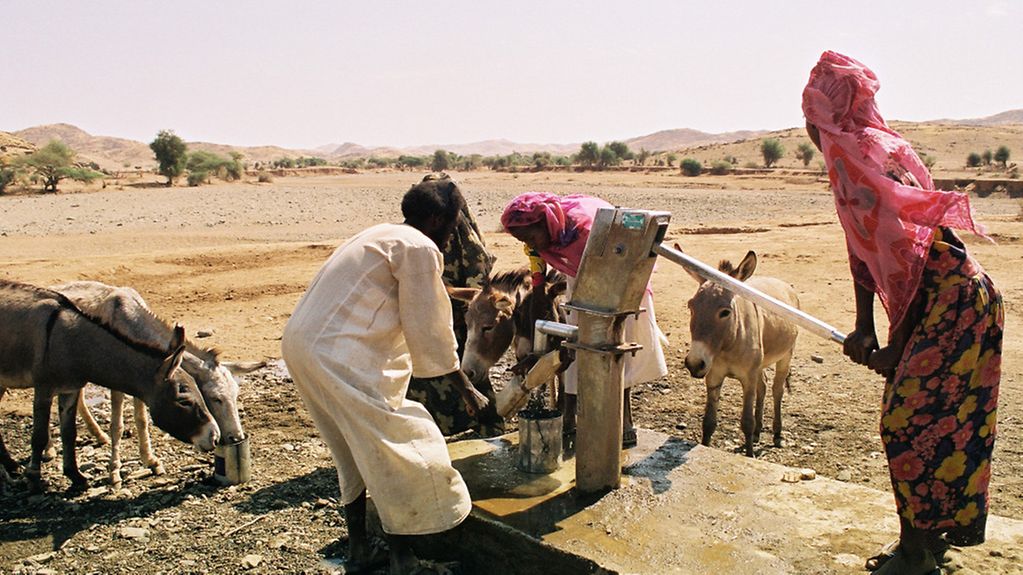Report to Cabinet
In the refugee crisis Germany is continuing to work to fight the causes of refugee movements and to stabilise the regions affected, in economic and political terms.
1 min reading time

The main causes of refugee movements and migration are poverty and the lack of access to education and jobs
Photo: Bundesregierung/Reineke
The German government has once again reiterated its position, at a Cabinet meeting that looked at migration and refugee movements.
The report of the Federal Minister of the Interior and the Federal Foreign Minister on "Migration Policy Risk Analysis 2016/2017" explored the risks relating to migration flows into Europe.
Analysing trends
They presented the situation and development trends in Syria and its neighbours, the Maghreb states and West Africa, the Horn of Africa, Yemen, Iran, Afghanistan, Pakistan, the Western Balkan states and Turkey.
They also analysed what is likely to happen along the main migration routes through the Western Balkans and across the Eastern Mediterranean, the Central Mediterranean and the Western Mediterranean, as well as possible alternative routes that might be used in future.
Main causes of refugee movements and migration
Alongside civil war, persecution, forced recruitment and political instability are some main causes of refugee movements and migration. Other factors include the increasing lack of prospects of any better future as a result of poverty, an inability to access education and the labour market, poor governance and corruption, and failed economic policy.
The way migration movements and numbers develop will thus depend essentially on the future political, social and economic situation, and the security situation, in the countries of origin, and the conditions along the migration routes. It is difficult to predict trends in this context.
Fighting the root causes of refugee movements
This is why the German government will continue to actively tackle the factors that force people to flee their homes.
This involves ensuring better access to the labour market, improving basic services in the regions, stabilising Libya and initiating more effective cooperation with the Maghreb states.